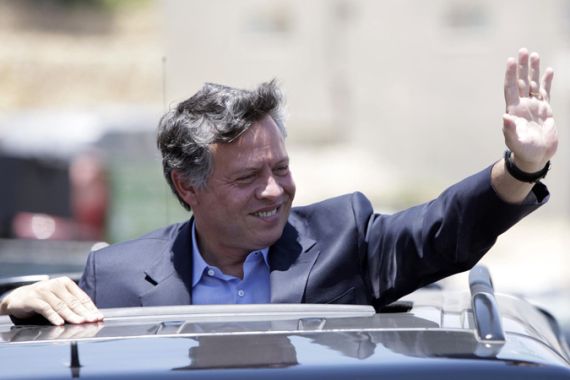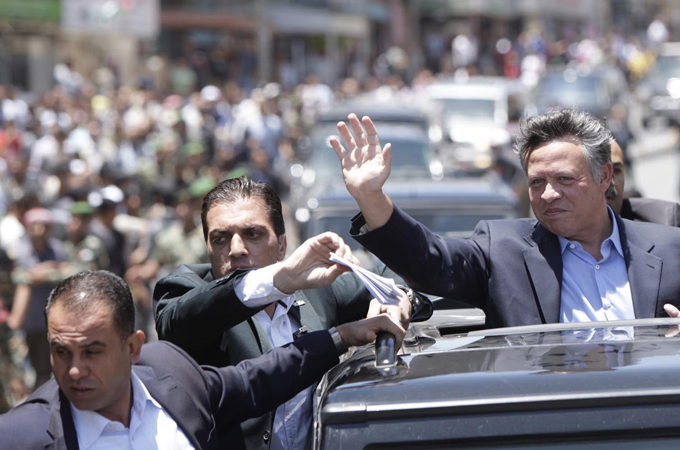Jordan denies attack on king’s motorcade
Government has rubbished reports of an attack, insisting that the monarch remains popular.

 |
| King Abdullah has come under pressure to enact reforms and relinquish some of his extensive powers [Reuters] |
Jordanian government spokesman Taher Adwan on Monday denied reports of an attack on King Abdullah’s motorcade while he was on an official tour in the southern city of Tafilah.
“After the king and his convoy left, some citizens were trying to reach the monarch to hand him letters with demands or to greet him, but they were stopped by the gendarmerie forces. It is totally untrue that the motorcade was stoned,” said Adwan, insisting that Abdullah is popular across the kingdom, despite anger against government policies.
|
|
“Objections of the town’s residents against the government has nothing to do with their reception to His Majesty the King. The king, wherever he goes in Jordan, is warmly welcomed.
“On the contrary, residents of Tafilah and other parts of the country constantly asked the king to visit them. The economic results of the visit were very good,” Adwan said.
The pro-west monarch on Sunday pledged political and economic reforms in answer to street protests that swept the kingdom during the past few months.
King Abdullah has faced pressures for reforms from many quarters including leftists and tribal figures to relinquish his extensive powers, which include his power to appoint cabinets and dissolve parliament.
Cry for reform
Protesters from the youth group, March 24, joined activists from the Islamic Action Front (IAF), the political wing of the Muslim Brotherhood and independent activists in Jordan’s capital Amman on Friday to chant anti-government slogans and condemn conservatives they blame for the lack of reform.
Demonstrators called for Prime Minister Maruf Bakhit and his cabinet to resign and criticised the former army general for resisting efforts to carry out political reform and fight corruption.
“Jordanian society is united in its determination to achieve reform and to produce a democratic, free and stable country that gives up its policy of allegiance to others, a policy that leads to more corruption and to the deterioration of our way of life” said Zaki Bani Rsheid, head of the political office at the IAF.
Activists say the sale of state assets to foreign investors over the past decade has enriched the country’s business and political elite but has done little to help the poor.
Recent street protests in Jordan have been triggered by difficult economic conditions that saw poverty jump to 25 per cent.